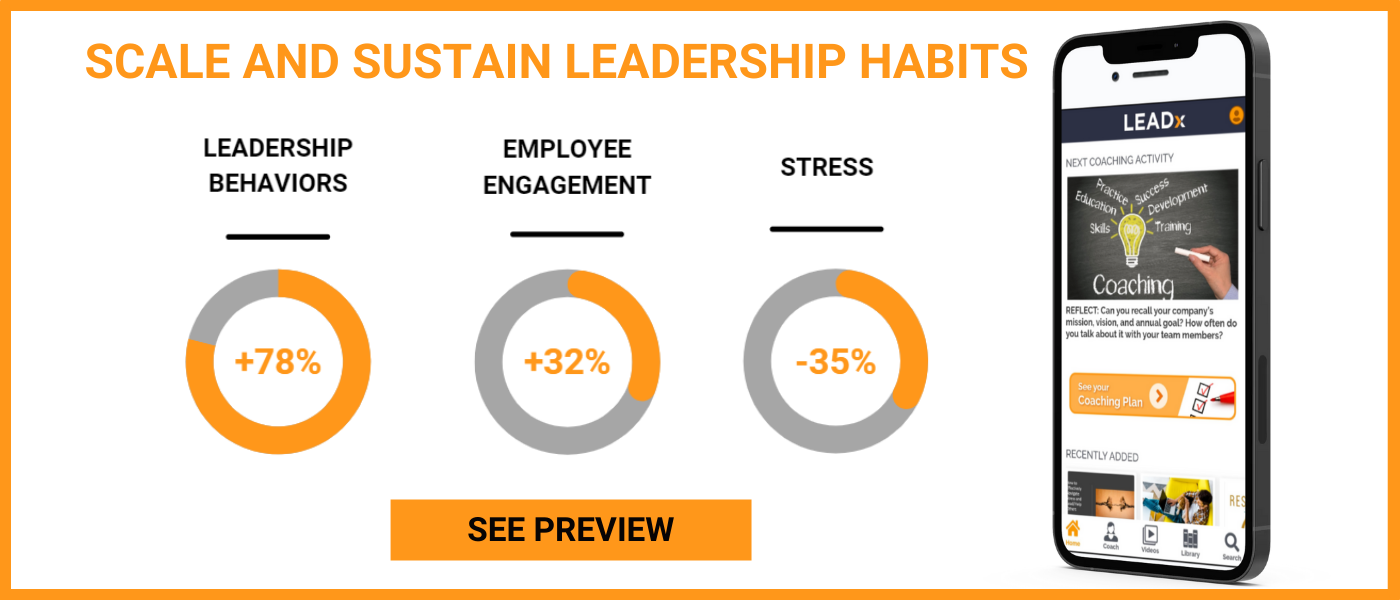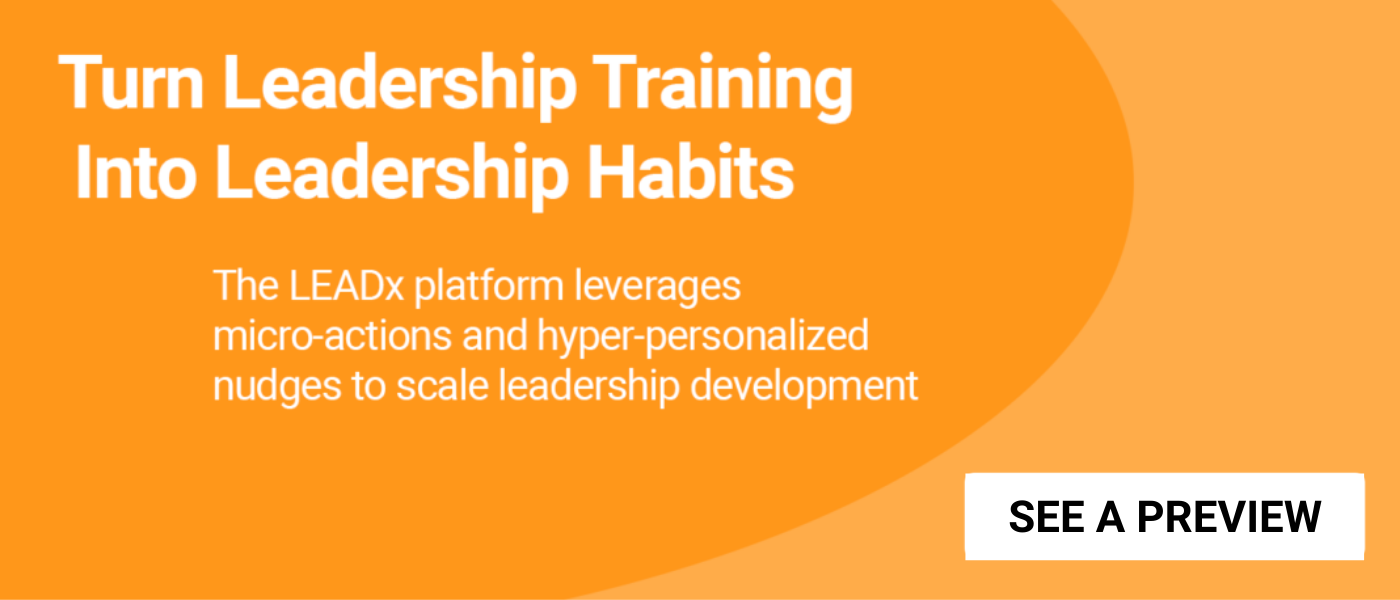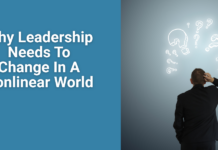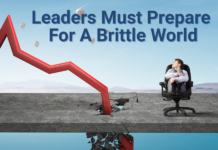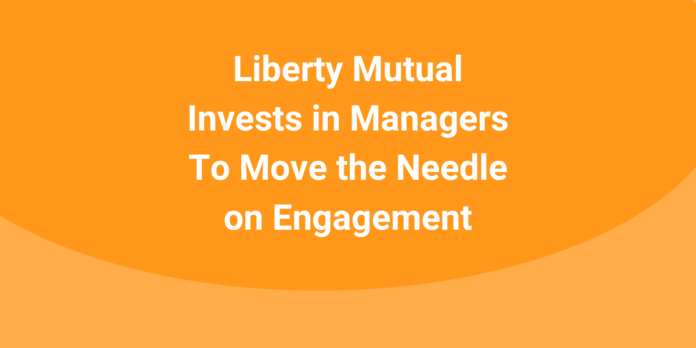
Employee resignations have reached a new high in what is being called the “Great Resignation.” And employee engagement is directly correlated to turnover.
But how do you dramatically improve engagement and improve retention in a century-old global company with tens of thousands of employees?
Boston-based Liberty Mutual is a 109-year-old Fortune 100 property and casualty insurance provider, insuring everything from bicycles to satellites. With the belief that progress happens when people feel secure, its mission is to help people embrace today and confidently pursue tomorrow.
I recently had a chance to catch up with Melanie Foley, Executive Vice President, Chief Talent and Enterprise Services Officer.
This transcript was edited for space and clarity.
Kevin Kruse: When it comes to scaling leadership and culture, you really have to scale. How many employees and people managers do you have?
Melanie Foley: We have 45,000 employees across 29 countries. And of those 45,000 employees, we have 7,000 people managers globally, with 4,700 of those managers based in the U.S.
Kruse: Research suggests that up to 70% of employee engagement is directly related to the manager. How does the organization approach employee experience and employee engagement when it comes to leadership and leadership development?
Foley: When I started in this position 10 years ago, our employee opinion survey data was telling us that we have gaps and if you look at these gaps, it became clear to me that all roads lead to managers and leaders. So, we decided that we were going to clearly articulate what our expectations were of this audience, and then help them build the skills needed in order to be effective, and then scale it across the enterprise.
Kruse: This data is how you gained internal support?
Foley: I remember standing in front of the top 150 leaders of the organization a couple of years back and sharing the current data with them, which showed we were not seeing improvements in employee sentiment towards senior leadership, and it mattered. The data said it's costing us employee engagement. It's costing us turnover. It's costing us productivity. We need to do something about this.
We then followed up with another meeting with the CEO and demonstrated the areas we felt like we needed to work on, including building capabilities for our leaders. We knew that it would be a significant investment. We knew we would be venturing into territory where we’d never been before. We were focused on psychological safety and diversity, equity and inclusion, and leaning into very successful work that we had already done around our guidelines for inclusion. The goal was for every employee and manager to be a better colleague and a better leader, by being inclusive of everybody in the organization.
Kruse: You are listing many different topics. Did you have a larger framework to keep it all together?
Foley: The foundation of the program is leading self, leading others, and leading through change. A lot of the work is around modern biases and modern exclusion biases – it is a really self-reflective, deep workshop experience and I believed that for the investment we were making, it needed to be life-changing.
As part of the development of the program, I insisted that myself, my peers, and my team all played a leadership role in co-creating and piloting it until we were ready to launch. It was important to me that every person had conviction that this was worth every dollar we spent and that it was going to be extremely important.
Kruse: How did you actually roll it out?
Foley: We launched a program we call Leading at Liberty for all managers. All managers go in with cohorts that have similar levels of responsibility — frontline managers, middle managers, senior managers. By the end of the first half of 2022, every current leader at Liberty Mutual will have gone through this cohort-based experience, which is foundational because we believe that learning is continuous.
Kruse: You are talking about cohorts, but delivered to thousands of people. How did you manage that?
Foley: I'm going to answer that question in two parts – pre- and post-COVID. We rolled it out in cohorts of no more than 30 people, at first, and they would actually come to a central hub. We had maybe a dozen places across the globe where people would fly in and stay with their cohort for two-and-a-half days and go through formal exercises. The word on the street was so good that within days, we were fully subscribed to the first 1,500 slots.
We continued to roll it out for about a year or so, and then COVID hit. So, we had to suspend these in-person meetings, but we quickly pivoted to online delivery. And what was a three-day, in-person program is now an eight-week, virtual-based program. I think it's meeting even more needs of our employees with flexibility during the pandemic, as people have become less accustomed to work travel and everything that goes with it. There have been highly effective and favorable results even since we switched it to an eight-week remote program.
Kruse: A hot topic since the pandemic is leading with empathy. Do you train for that?
Foley: We believe it's a very important skill, and we just actually launched a leading with empathy toolkit for all our managers and leaders this summer to help them foster an empathetic culture. The online toolkit includes videos, podcasts, and interactive resources that start with the four ways to lead with empathy, and closes with an action tool to plan how each manager will use the four ways to lead with empathy.
We've been talking about resilience long before it was a buzzword in every news article because we had been going through so many changes in our organization to just keep up with technological changes, competitive pressures, et cetera. And we knew that in order for us to really embed this into our DNA, our managers and leaders needed to understand what empathy really was and how to lead with it.
Kruse: I know the program is relatively new. Is it too early to see if it's moved the needle on engagement? Is it getting results?
Foley: It is not too early to say. We have seen double-digit increases in our employee sentiment towards senior leaders. We've also seen a twelve-point increase in our employee engagement over the last two years.
And 85% of our leadership is promoted from within. I think that speaks to our confidence that the leaders in the organization are developing to our standards. And then we've been recognized this year with several honors. We were named Forbes “World’s Best Employers,” “Best Employer for Women” and “Best Employer for New Grads.” We've received a score of a hundred on the Human Rights Campaign Corporate Equality Index for the fourth year in a row and named a “Best Place to Work for LGBTQ Equality.” And we were just included on People Magazine's annual list of “Companies That Care” for demonstrating outstanding respect, care, and concern for our employees, and our communities around the world.
Kruse: What advice do you have for others who are trying to scale leadership and culture?
Foley: Like I said before, all roads lead to managers and leaders. So, focus on your leaders. Think about how to strengthen your leadership capabilities aligned to what your expectations are and how you're going to achieve your own mission and purpose. And remember that people are multidimensional. It's about supporting the whole person and taking a holistic approach to continuous learning and providing employees with as many resources as you can.
I found that one of the strongest underpinnings of the success that we've had so far is people's willingness to be authentic and vulnerable, even at the top of the house. Leaders need to set the tone and show others how they navigate through change, make and own mistakes, and just try to be better. And having that growth mindset, that “I can be better. I might make mistakes along the way, and I'm not afraid to let people see that.” That authenticity goes a long way to building trust.


